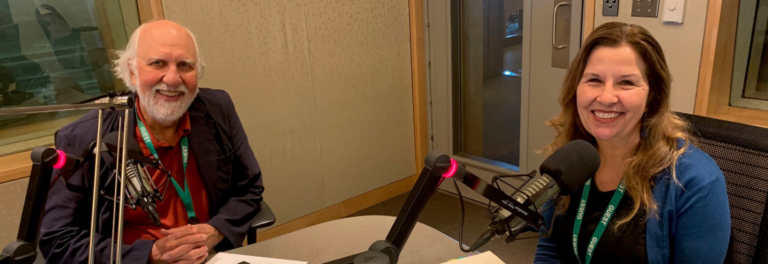In winter 2025, on behalf of the Midwest Indigenous Immersion Network (MIIN) I conducted interviews with 11 folks in Minnesota and Wisconsin who are some of the most highly proficient second language Ojibwe speakers in the region to learn more about how people learn to speak Ojibwemowin, and more specifically how people go from being intermediate learners to highly proficient speakers.
Most research on adult language learning has focused on languages that are still spoken by millions of people around the world. Learning Ojibwemowin is different. Since so few people speak Ojibwemowin fluently in any one community (with rare exceptions), there is a lack of whole-day, long-term immersion environments for learners. These interviews focused on learning from individuals who have been able to attain advanced skills in Ojibwemowin despite these limitations.
Self-Study Plans
These advanced learners of Ojibwemowin were all highly motivated individuals who had a “fire in their belly” to learn the language. Many of these learners did take Ojibwe classes in college, but that was not the main way that most of these advanced learners felt their language skills got to the highest level. These advanced learners were very resourceful in finding creative ways to gain exposure to the language to grow their skills. Many of them created self-study plans involving listening (and re-listening, and transcribing, and translating, and repeating) audio recordings of First Speakers.
Direct Access to First Speakers
Many of these advanced learners also had unique direct access to First Speakers. For example, the learners played the role of helper or apprentice for these First Speakers as they were conducting ceremonies. The elder First Speakers supported the learners by answering their incessant questions, held them to very high standards, and encouraged them to use their Ojibwemowin in public settings by starting to lead or facilitate the ceremonies themselves (oftentimes before the learner felt ready). Unfortunately, there are very few First Speakers of Ojibwemowin left in our communities. Even during the course of this short study, at least two elder First Speakers who were named by many of the interview respondents as very influential in their language learning journey passed on to the spirit world.
Immersion Programs
Advanced learners of Ojibwemowin participated in adult immersion programs, language tables, and similar environments where they were exposed to other learners at similar level. A key factor is maintaining a true immersion environment and being able to work through the discomfort and frustration that results from trying to navigate day-to-day live and conversations in a new language. Similarly, many of the advanced learners benefited from working in an immersion school. A key piece of advice these advanced learners shared with others who are working to increase their language proficiency is to be confident in speaking Ojibwe, even if you feel self-conscious!
Because there are so few First Speakers left and they are leaving us quickly, Ojibwemowin in an extremely endangered language. This is the result of active suppression of Indigenous languages and cultures throughout the centuries-long colonization process. Only in very recent years has there been more widespread support for Indigenous language revitalization efforts. Other communities have created innovative programs and approaches to language revitalization that we can learn from here in Ojibwe Country. See, for example, the Onkwawenna Kentyohkwa Mohawk Adult Immersion Program and the Cherokee Language Master Apprentice Program.
MIIN is working alongside other language warriors to support an ecosystem where we have enough highly proficient adult speakers of Ojibwemowin to facilitate better language access and more immersion opportunities for our young relatives. In this way, we hope to revitalize Ojibwe language and culture.





